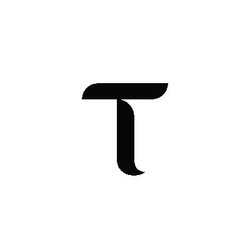Advertisement|Remove ads.
BYD Hits 13M NEV Milestone With U7 Launch — But Analysts Warn China Price Wars, Cooling Demand Could Derail 2025 Goals

BYD has rolled out its 13 millionth new energy vehicle, a U7 luxury sedan from its high-end Yangwang brand.
The milestone comes just eight months after the automaker reached the 10 million mark, according to CnEVPost.
However, signs of strain are emerging in its domestic market. Once hailed as the leader of China’s EV boom, BYD now faces slowing sales at home, mounting competition, and regulatory headwinds.
Core passenger car deliveries in China declined 8% in June compared to the same period a year earlier, while rivals such as Geely and Xiaomi gained market share.
HSBC data shows Geely was the top gainer in market share in the first half of 2025, while BYD was among the biggest losers, according to a Bloomberg report.
To meet its 2025 sales goal of 5.5 million vehicles, BYD must now deliver 560,000 units every month through December. The figure is well above its best-ever monthly performance of just under 515,000 units in December last year.
Analysts are increasingly skeptical. Deutsche Bank expects its full-year sales for BYD to reach 5 million vehicles, while Morgan Stanley now forecasts 5.3 million.
The revised estimates come as BYD grapples with growing pressure from Beijing to cool what officials are calling “irrational competition” in the EV market. After cutting prices by as much as 34% in May, BYD came under fire from regulators concerned about the long-term impact of steep discounting.
State-run media also stepped in, warning that aggressive price wars among automakers could hurt the economy by driving deflation and destabilizing the industry.
BYD’s international strategy offers some relief. Overseas sales are on track, with nearly 60% of its 800,000-unit target already achieved. But growing overseas isn’t easy either.
Saudi Arabia is another location where BYD aims to triple its footprint, but electric vehicles in the country account for a small percentage of car sales. BYD faces challenges such as the higher cost of electric vehicles in the kingdom, the country's hot weather, and a lack of charging infrastructure.
In India, the company continues to face regulatory barriers that have hindered its expansion. European tariffs have also made it challenging for BYD to enter the market, which is highly competitive and dominated by many traditional automakers.
Still, the company is betting big on the high-end segment to defend its lead.
Yangwang, BYD’s ultra-luxury sub-brand launched last year, is key to that plan. The U7, its latest flagship, began deliveries in June and is priced from 628,000 yuan. While Yangwang’s June sales were modest at 205 units, they marked a near 50% jump from the previous month, signaling early traction.
BYD discontinued production of combustion-only vehicles in March 2022 and now produces only plug-in hybrids and battery electric vehicles.
On Stocktwits, retail sentiment for BYD was ‘bullish’ amid ‘high’ message volume.
BYD’s U.S.-listed stock has risen 45.3% so far in 2025.
For updates and corrections, email newsroom[at]stocktwits[dot]com.












/filters:format(webp)https://news.stocktwits-cdn.com/large_Getty_Images_2200882557_jpg_53f3e467bc.webp)
/filters:format(webp)https://news.stocktwits-cdn.com/Anushka_Basu_make_me_smile_in_the_picture_b92832aa_af59_4141_aacc_4180d2241ba8_1_2_png_1086e0ed8c.webp)
/filters:format(webp)https://news.stocktwits-cdn.com/large_Getty_Images_2260269284_jpg_cf42b9b8c3.webp)
/filters:format(webp)https://news.stocktwits-cdn.com/large_Patrick_Witt_d5f3eaa4da.webp)
/filters:format(webp)https://news.stocktwits-cdn.com/large_Brian_Armstrong_Coinbase_60d65adb96.webp)
/filters:format(webp)https://news.stocktwits-cdn.com/large_immunitybio_stock_jpg_9eab8bde17.webp)
/filters:format(webp)https://st-everywhere-cms-prod.s3.us-east-1.amazonaws.com/unnamed_jpg_9dff551b50.webp)
/filters:format(webp)https://news.stocktwits-cdn.com/large_lowe_logo_resized_jpg_b9cb8f6035.webp)
/filters:format(webp)https://news.stocktwits-cdn.com/Aashika_Suresh_Profile_Picture_jpg_2acd6f446c.webp)